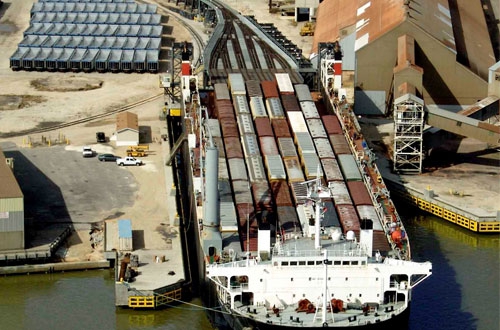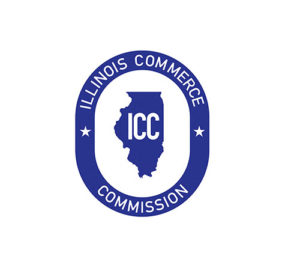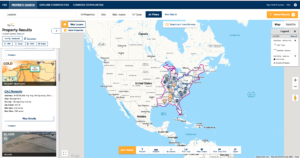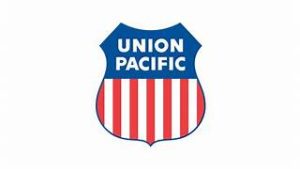With $6.8 billion requested, U.S. DOT hands out $905 million in grant money
Written by RT&S Staff
U.S DOT Secretary Pete Buttigieg announced that the Biden-Harris administration intends to award $905.25 million to 24 projects in 18 states under the Infrastructure for Rebuilding America (INFRA) discretionary grant program.
“These timely investments in our infrastructure will create jobs and support regional economies, while helping to spur innovation, confront climate change, and address inequities across the country,” said Secretary Pete Buttigieg.
INFRA grants were selected based on several criteria. In addition to prioritizing projects that would improve local economies, create jobs, and meet all statutory requirements, for the first time in U.S. DOT history, grants were considered by how they would address climate change, environmental justice, and racial equity.
Further, U.S. DOT prioritized funding to rural areas to address historic underinvestment. Approximately 44% of proposed funding will be awarded to rural projects, which exceeds the statutory requirements for rural projects set by Congress by 19%.
INFRA projects also were rated on the extent that they applied innovative technology and whether they could deliver projects in a cost-effective manner.
Demand for INFRA grants far exceeded available funds. U.S. DOT evaluated 157 eligible applications from 42 states, as well as Guam. Applicants collectively requested approximately $6.8 billion in grant funds—more than seven times the funding available.
The below projects are just a few examples of how the INFRA grant program aligns with the Administration’s priorities and provides critically needed funding for highway and freight projects of national or regional significance throughout America.
Dubuque Port and Rail Improvements, Dubuque, Iowa
The city of Dubuque will be awarded $5 million to increase capacity and make improvements to the Gavilonmarine port and rail facility at Dove Harbor terminal at the Port of Dubuque. The project would renovate an existing fertilizer storage to increase its storage capacity, replace and upgrade approximately 7,300 ft of inoperable rail track; relocate approximately 2,800 ft of rail track to support direct transport of fertilizer and other bulk products from river barge to rail; and install new rail equipment, including a main line switch, loadout system and shed, and rail-to-barge direct transfer system.
In addition to creating jobs, the project’s capacity expansion and improved rail access will increase the tonnage of fertilizer shipped through the terminal, will shift fertilizer and grain shipping from truck and rail to port and rail, and will address safety by upgrading hazardous rail track. The shift from truck to maritime transport results in substantial economic vitality benefits, such as reduced operating costs for shippers, and also directly contributes to the climate goal in Dubuque’s Climate Action Plan to decrease vehicle miles traveled by 10% by 2030. Additionally, the terminal operator is a key partner and employer in the city’s efforts to address equity through the Equitable Poverty Reduction and Prevention Plan and a commitment to creating a community Racial Equity Index. The project is located in a Federal Opportunity Zone.
Northeast Georgia Inland Port, Hall County, Georgia
The Georgia Ports Authority will be awarded $46,868,000 to build a new inland container port along the I-85/I-985 corridor in an unincorporated area of Gainesville, which will be linked with the Port of Savannah by direct, 324-mile intermodal freight rail service.
The project supports economic vitality by creating jobs and reducing freight travel times by providing a direct freight rail link to the Port of Savannah, reducing the need for containers moving between the Gainesville area and the seaport from traveling either 301 miles by truck or by rail to a yard west of Atlanta and then traveling by truck an additional 70 miles through a congested area. By shifting more transport to freight, it will have positive climate impacts by reducing vehicle miles traveled. There also is private-sector support for the project which can stretch federal dollars even further with this project.
As required under the FAST Act, Congress will have 60 days to review the Department’s proposed project awardees. After the 60-day review period, the Department is free to begin obligating funding.
The full list of proposed awards is on the Department of Transportation’s website: https://www.transportation.gov/buildamerica/financing/infra-grants/infra-2021-fact-sheets.
More information can be found on the Department’s INFRA site located at: www.transportation.gov/INFRA
Read more articles on Class 1s.





